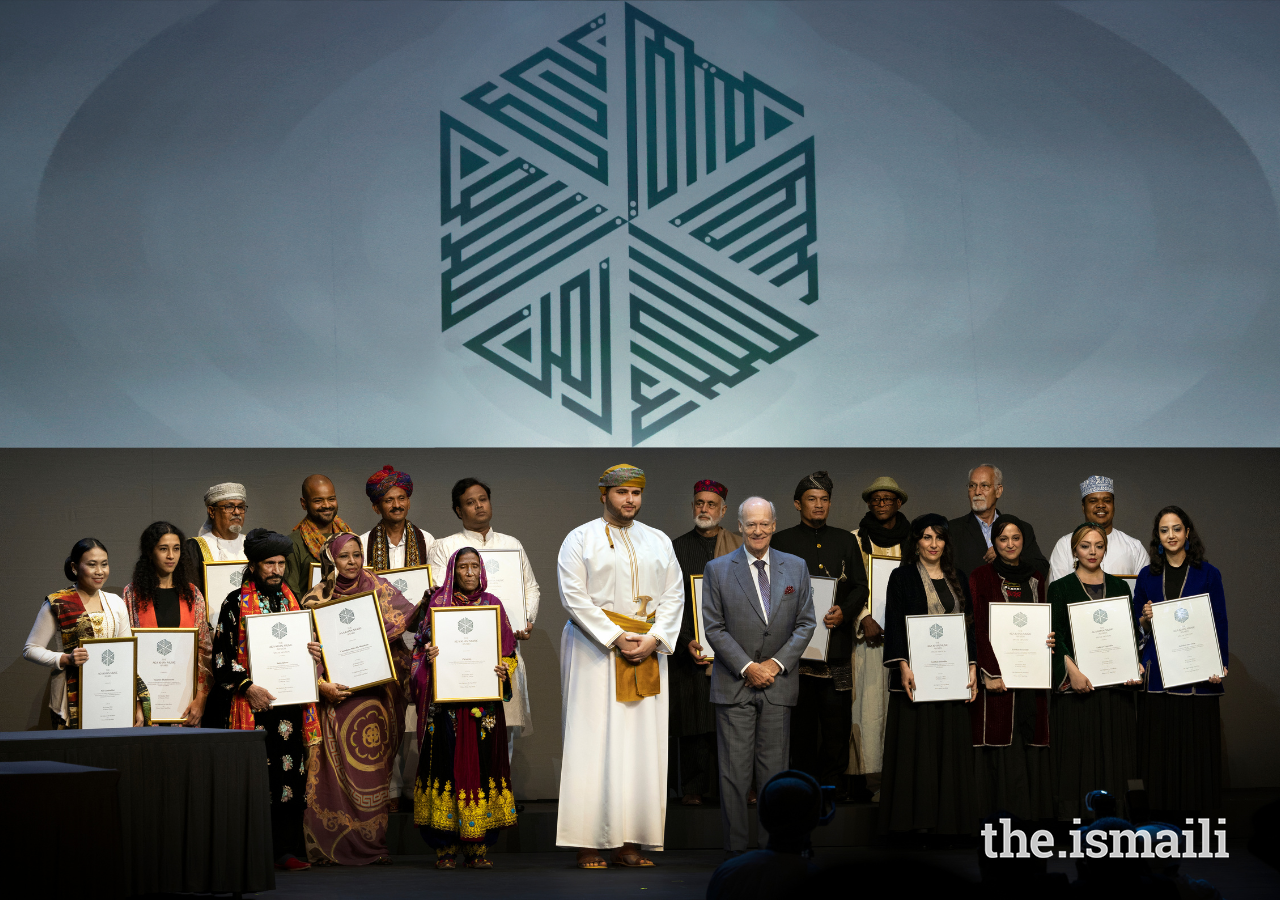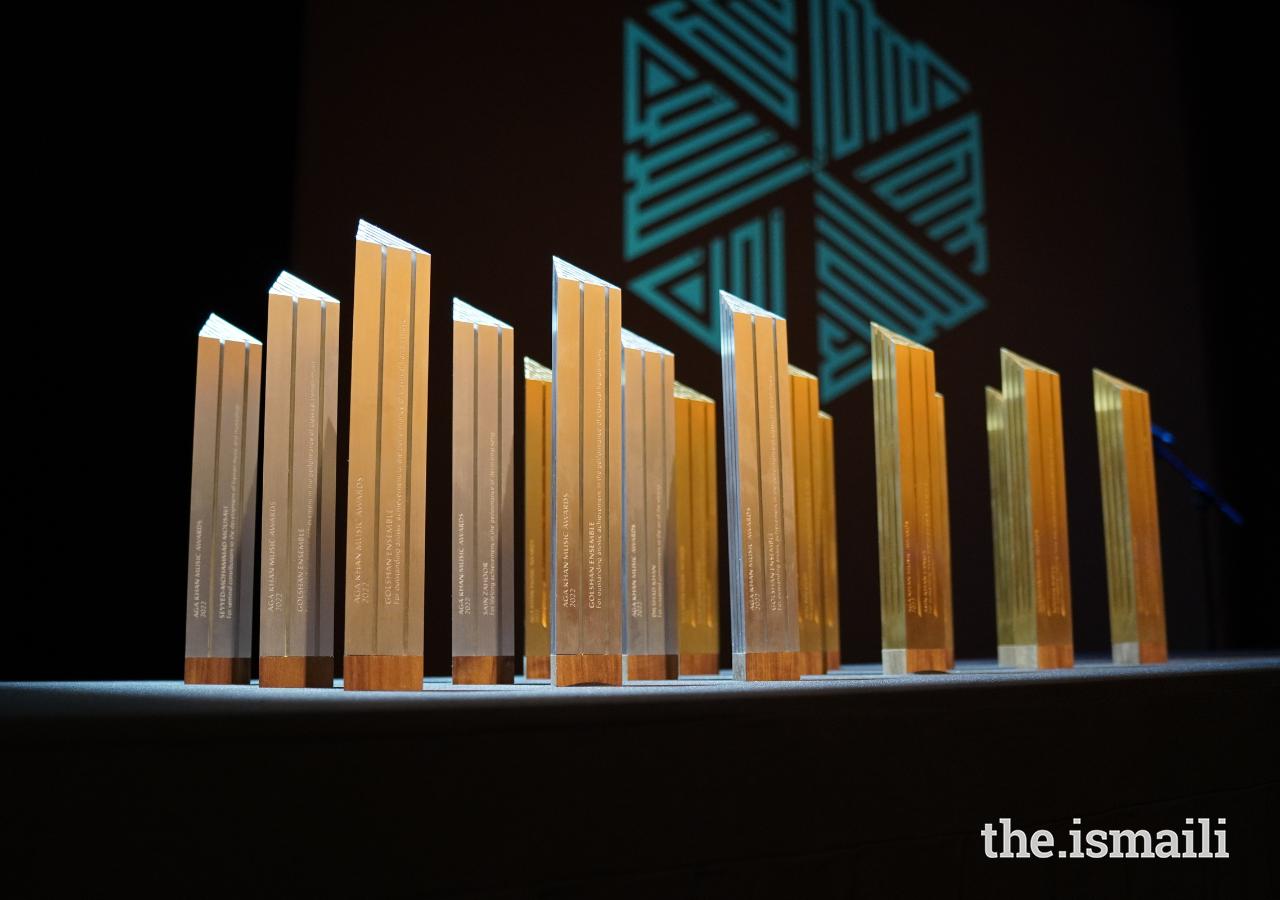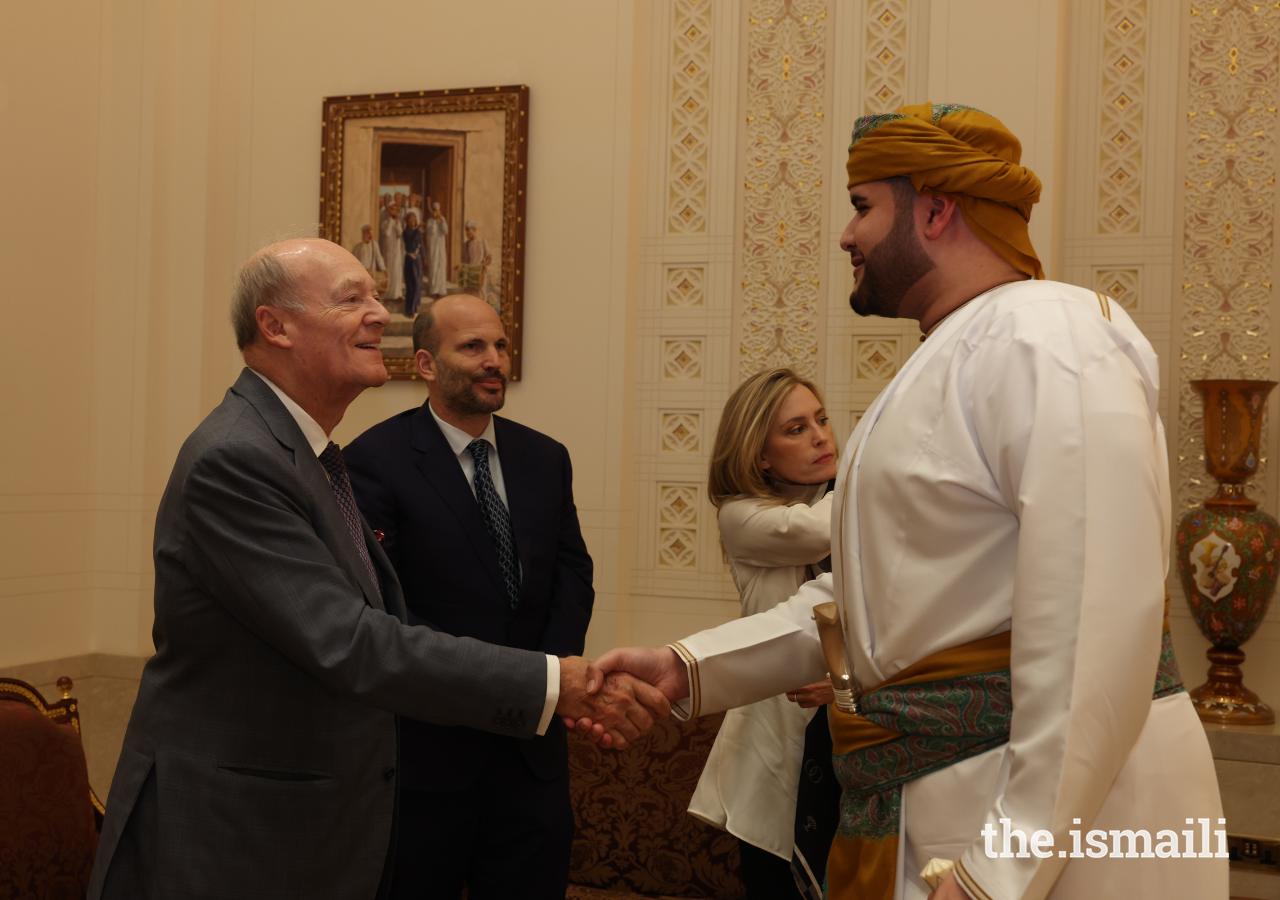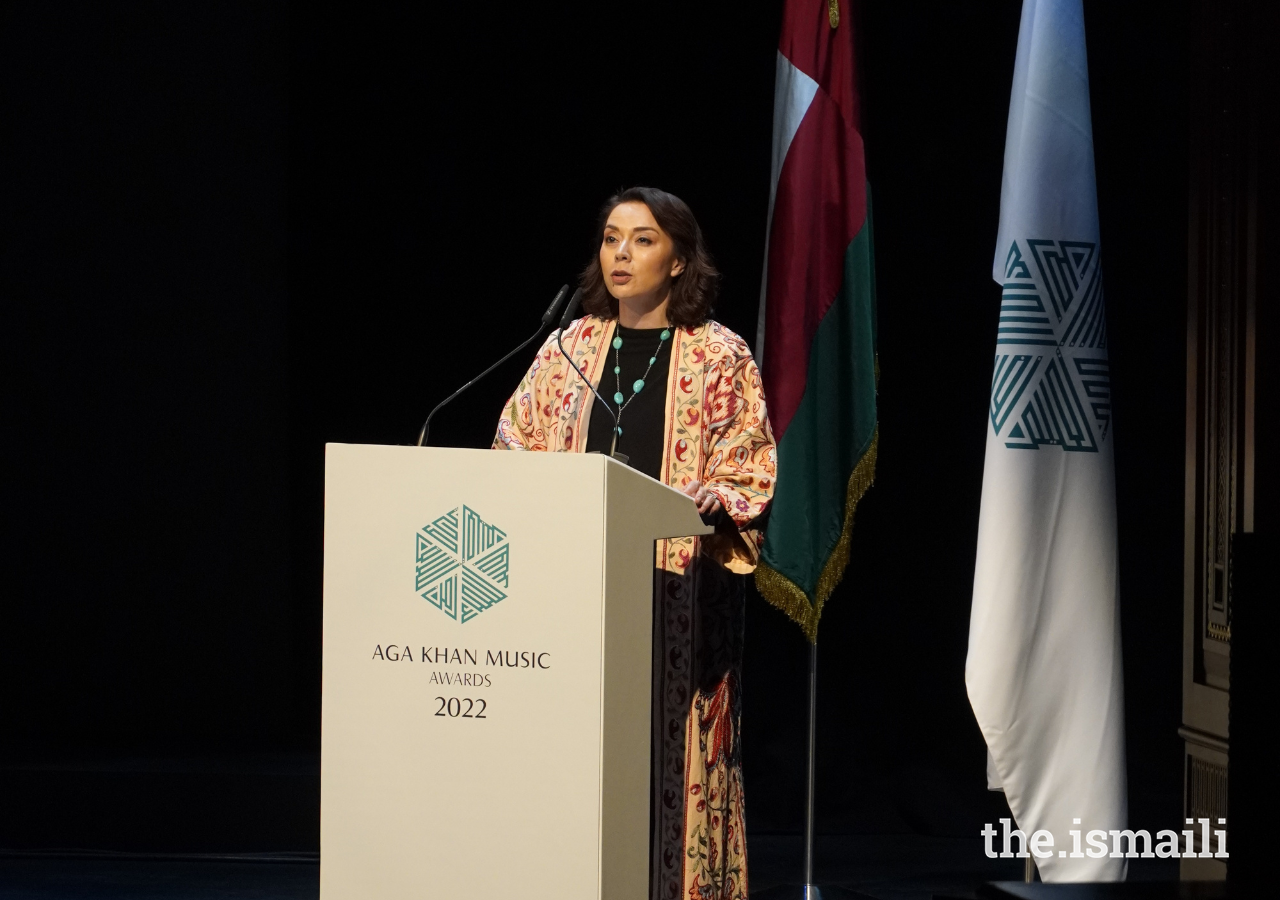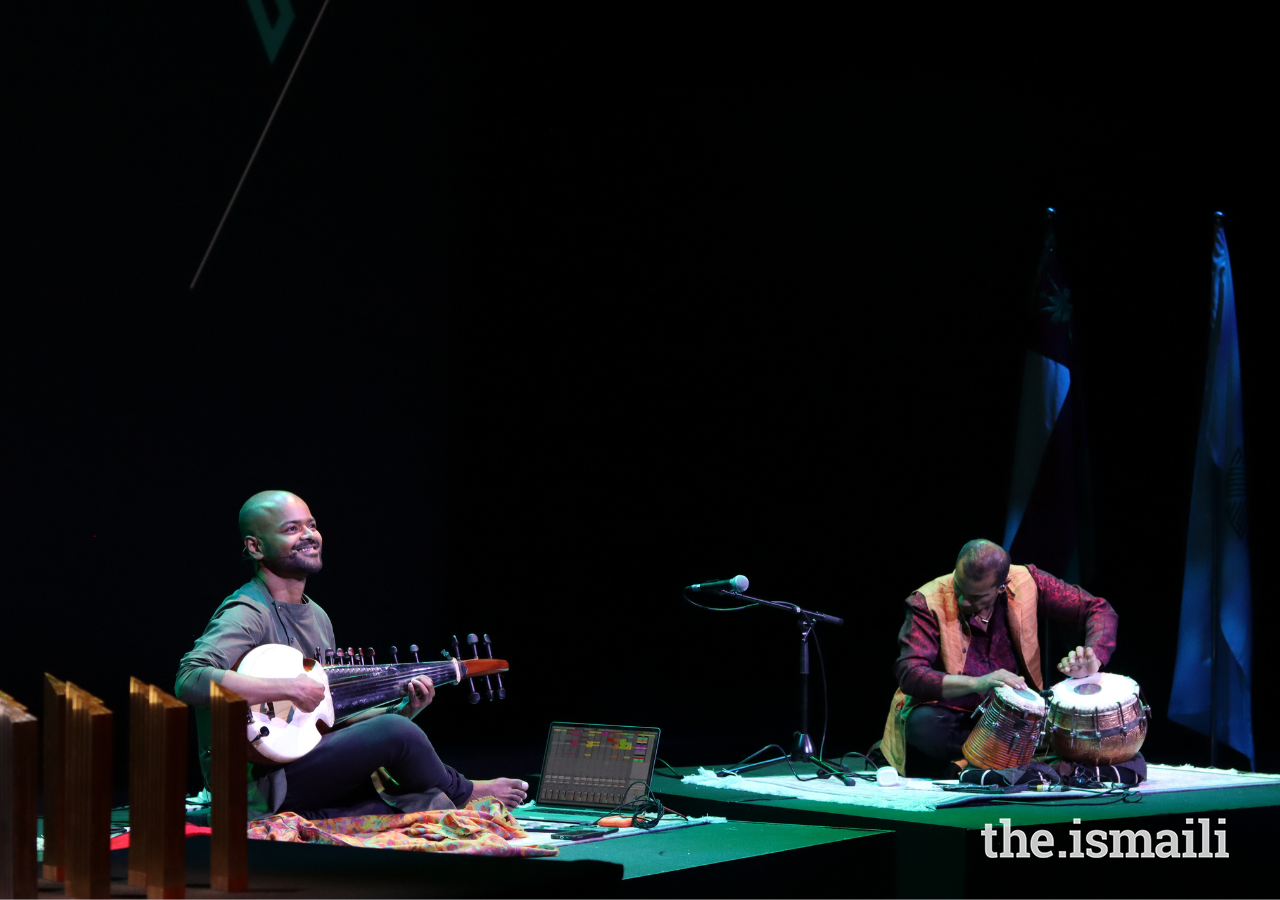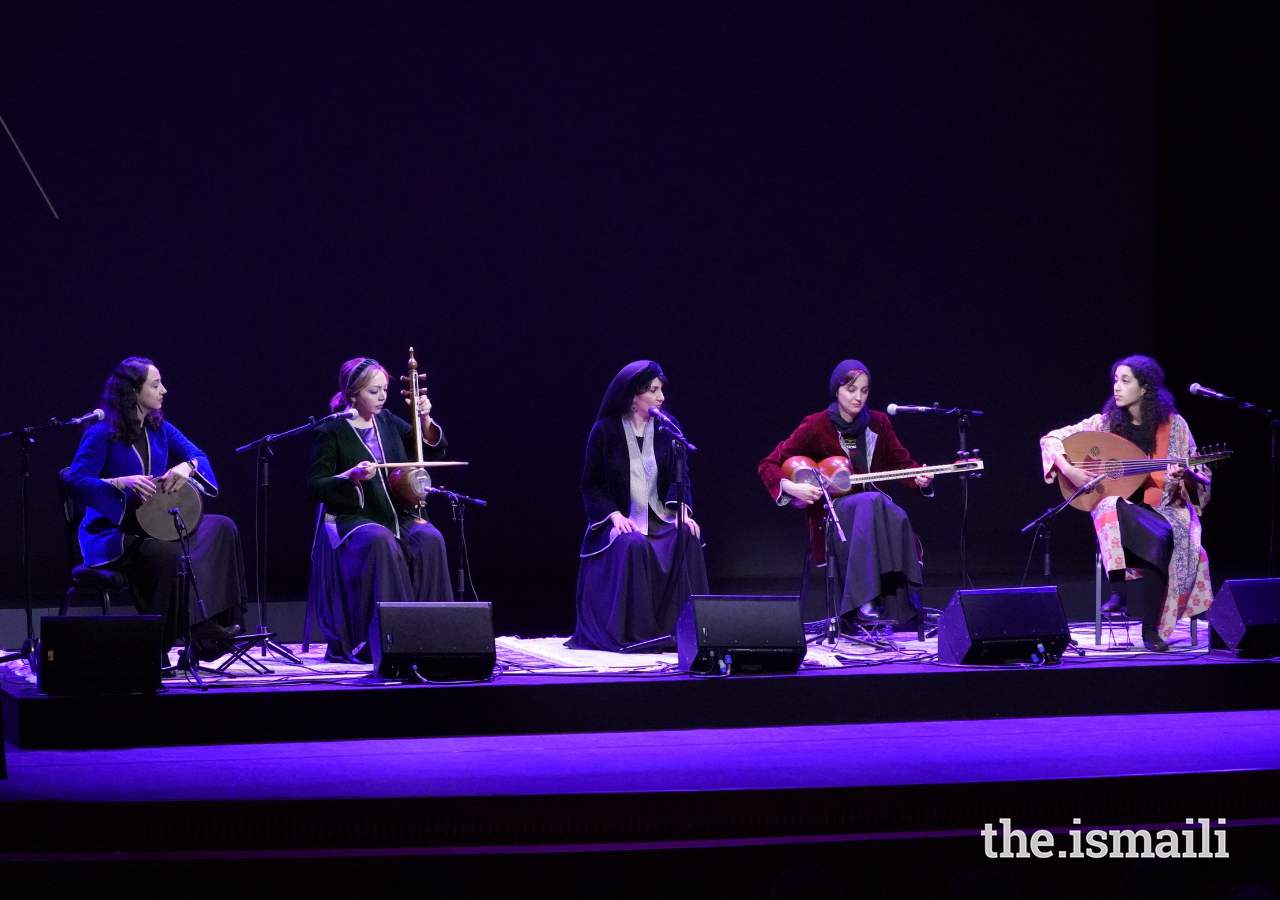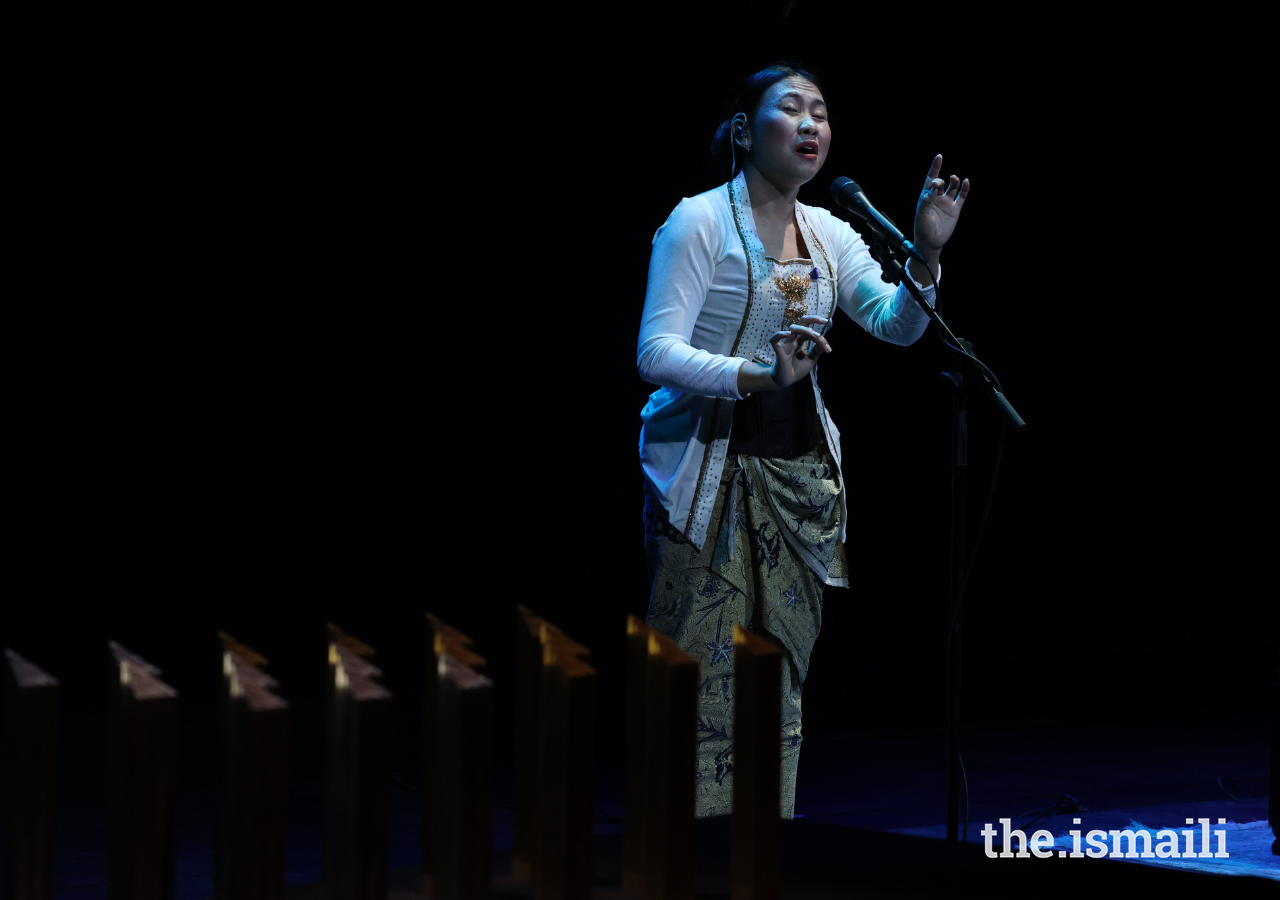Prince Amyn, Princess Zahra, Prince Hussain, and Princess Fareen attended the AKMA Gala Concert and Prize-Giving Ceremony, which featured more performances from the 2022 Laureates. The evening also included the presentation of Awards to each Laureate by Prince Amyn and His Highness Sayyid Bilarab bin Haitham al Said.
The evening began with a performance by Peni Candra Rini of Indonesia. From the first note, there was pin drop silence in the hall. She danced gracefully as she sang, demonstrating traditional Indonesian vocal techniques with an impressively wide range, alongside equally impressive percussive accompaniment.
Yasamin Shahhosseini’s solo performance on the oud produced a deep rich sound in the auditorium as she played with soul. She was later joined by the Golshan Ensemble, made up of four talented fellow Iranian women, and collectively the quintet made a powerful statement on-stage. They showcased vocal and instrumental prowess on the tar, the kamancheh, the tombak, and the oud, and built momentum through the various layers in their piece.
The final performance was granted to Soumik Datta of the UK, who incorporated several different musical styles, including classical Hindustani music on the sarod and electronica. His creativity and sense of play was evident through the performance as the tempo rose and fell. The audience, electrified by the Laureates’ talent, expressed their admiration for each of the performances.
Fairoz Nishanova, director of the Aga Khan Music Programme, closed the evening by thanking the artists for sharing their gifts of music, and for participating in never previously heard collaborations, thus being part of history.
There were also many special moments off-stage this week in Muscat. Beyond the planned collaborations, spontaneous jam sessions erupted following each concert, in which artists created music in real-time. Last night, Afel Bocoum’s band grooved alongside Asin Khan Langa’s traditional Indian instrumentation. Seven different vocalists then sang on top of the instrumental accompaniment, each representing vastly different musical traditions: Coumbane Mint Ely Warakane from Mauritania, Dilshad Khan from India, Peni Candra Rini from Indonesia, Asin Khan Langa from India, Asareh Shekarchi from Iran, Afel Boucom from Mali, and Daud Khan Sadozi from Afghanistan.
During the backstage lunch hour, Zarsanga and Sain Zahoor, both of Pakistan, broke out in devotional song. After their respective rehearsals were done, Peni Candra Rini and Zulkifli and Bur’am met, wrote, and recorded a song in-studio, and have agreed to meet up again in Indonesia to enhance their collaboration. Many connections were formed, and plenty of new music was created this weekend.
“Exposure to different ways of making music and thinking about music represents a form of enlightenment,” Prince Amyn stated in his remarks yesterday evening. “Being challenged to compose or improvise music that incorporates new musical languages and different kinds of instruments and performance techniques requires that musicians be creatively nimble and flexible, and that they be willing to find new ways of expressing our shared emotions and essentially similar dreams and experiences.”
Watching the musicians, it was clear they had embraced the challenge and were positively enlightened. Everyone in attendance over the past two evenings, in-person and online, witnessed historic cross-cultural collaboration and a sense of sublime beauty emanating via the Laureates’ music.

